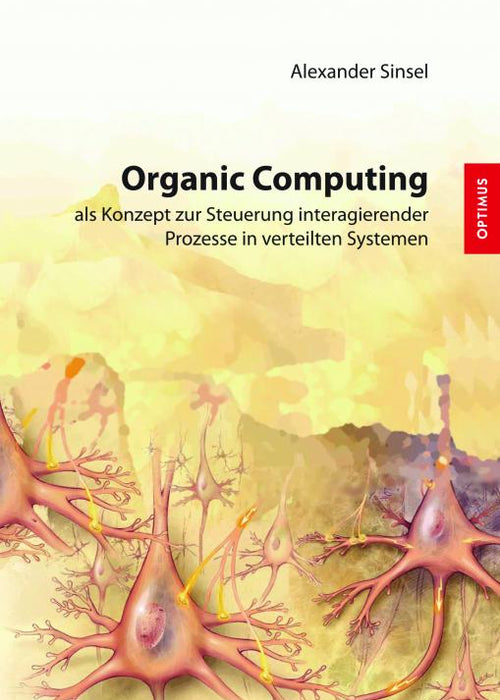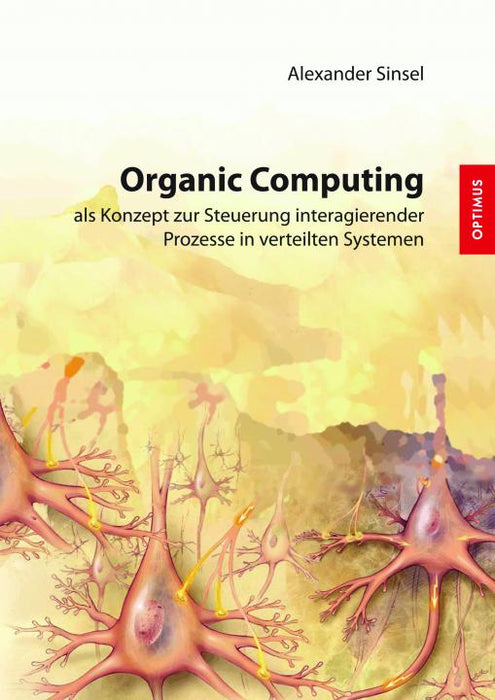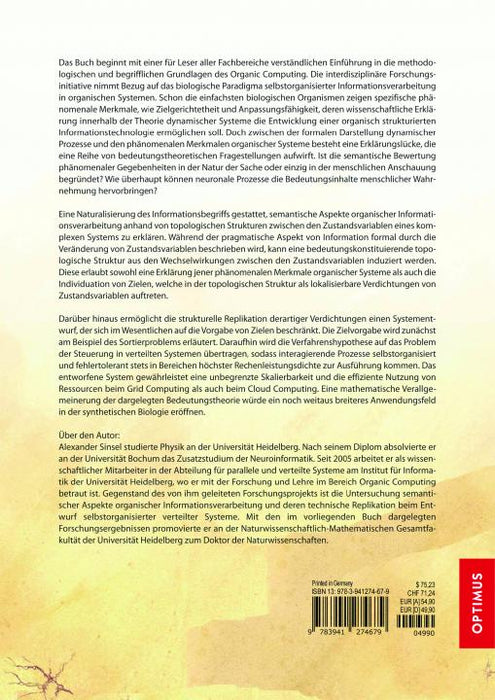Organic computing as a concept for controlling interacting processes in distributed systems
- Brand: Sinsel, Dr. Alexander
- Availability: In stock
- SKU: 9783941274679
€49,90
The book begins with an introduction to the methodological and conceptual foundations of organic computing that is understandable for readers of all disciplines. The interdisciplinary research initiative refers to the biological paradigm of self-organized information processing in organic systems. Even the simplest biological organisms show specific phenomenal characteristics, such as...
The book begins with an introduction to the methodological and conceptual foundations of organic computing that is understandable for readers of all disciplines. The interdisciplinary research initiative refers to the biological paradigm of self-organized information processing in organic systems. Even the simplest biological organisms show specific phenomenal characteristics, such as goal orientation and adaptability, the scientific explanation of which within the theory of dynamic systems should enable the development of organically structured information technology. However, there is an explanatory gap between the formal representation of dynamic processes and the phenomenal characteristics of organic systems, which raises a number of meaning-theoretical questions. Is the semantic evaluation of phenomenal givens based on the nature of things or only on human perception? How can neuronal processes produce the meaning of human perception?
A naturalization of the concept of information makes it possible to explain semantic aspects of organic information processing using topological structures between the state variables of a complex system. While the pragmatic aspect of information is formally described by changing state variables, a meaning-constituting topological structure can be induced from the interactions between the state variables. This allows both an explanation of those phenomenal features of organic systems and the individuation of goals, which appear in the topological structure as localizable compressions of state variables.
In addition, the structural replication of such compressions allows for a system design that is essentially limited to the specification of goals. The target is first explained using the example of the sorting problem. The procedural hypothesis is then transferred to the problem of control in distributed systems, so that interacting processes are always executed in areas of the highest computing power density in a self-organized and fault-tolerant manner. The designed system ensures unlimited scalability and efficient use of resources in both grid computing and cloud computing. A mathematical generalization of the presented theory of meaning would open up an even broader field of application in synthetic biology.
Details
- Title: Organic Computing
- Subtitle: as a concept for controlling interacting processes in distributed systems
- Author: Dr. Alexander Sinsel
- Edition: 1st edition
- Published: 1st edition 09.03.2011
- Department: Computer Science
- Product Type: Book (Hardcover)
- Product type: Dissertation
- Language: German
- Binding: Hardcover
- Dimensions: 29.7 x 21.0 cm (DIN A4)
- Scope: 291 pages
- Condition: New (shrink-wrapped in foil)
- Keywords: Artificial Intelligence (AI), cloud computing, dynamics, dynamic processes, dynamic systems, grid computing, artificial intelligence (AI), organic information processing, organic systems, organically structured information technology, self-organization, semantics, structuralism, theory of dynamic systems , topological structuralism, topological structure
Author
Alexander Sinsel studied physics at the University of Heidelberg. After graduating, he completed an additional course in neuroinformatics at the University of Bochum. Since 2005 he has been working as a research assistant in the department for parallel and distributed systems at the Institute for Computer Science at the University of Heidelberg, where he is responsible for research and teaching in the field of organic computing.The subject of the research project he heads is the investigation of semantic aspects of organic information processing and their technical replication in the design of self-organized distributed systems. With the research results presented in this book, he received his doctorate in natural sciences from the natural sciences and mathematics faculty of the University of Heidelberg.
Downloads
.DRM: Digital Watermark
This eBook contains a digital watermark and is therefore personalized for you. If the eBook is passed on to third parties abusively, it is possible to trace it back to the source.
File format: PDF (Portable Document Format)
With a fixed page layout, the PDF is particularly suitable for specialist books with columns, tables and figures. A PDF can be displayed on almost all devices, but is only suitable to a limited extent for small displays (smartphone, e-reader).
System requirements:
PC/Mac: You can read this eBook with a PC or Mac. You need a PDF viewer - e.g. Adobe Reader.
eReader: This eBook can be read with (almost) all eBook readers. However, it is not compatible with the Amazon Kindle.
Smartphone/Tablet: Whether Apple or Android, you can read this eBook. You need a PDF viewer - e.g. Adobe Reader.
Buying eBooks from abroad
For tax law reasons we can sell eBooks just within Germany and Switzerland. Regrettably we cannot fulfill eBook orders from other countries.



